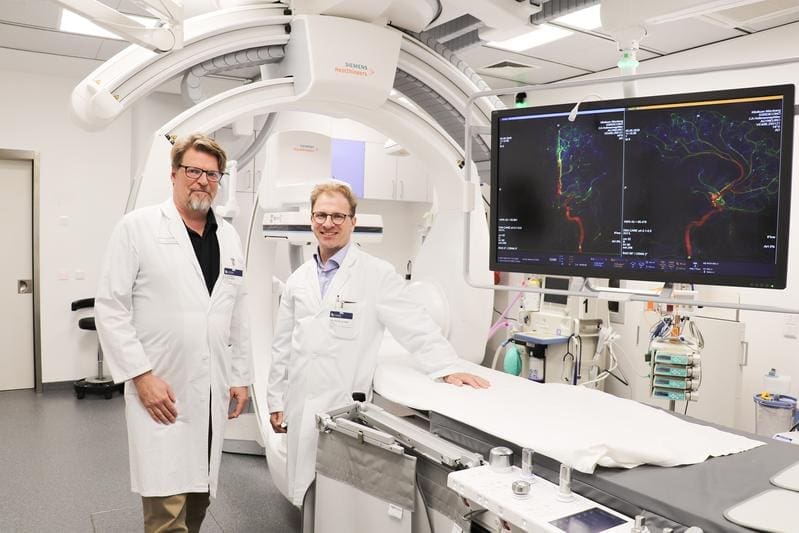Nuremberg hospital leads Europe-wide study on stroke care
In cooperation with the University Hospital Basel, Nuremberg Hospital is leading a Europe-wide study to improve the acute care of stroke patients. The “GET-FAST” project, funded by the German Research Foundation, is investigating whether patients with severe strokes recover better if radiological imaging and therapy are carried out in the same room according to the “one-stop” principle. The study will start in August 2025 and is supported by Paracelsus Medical University.
The initiators of the study are the Head of Neurology at Nuremberg Hospital, the Head of Neuroradiology at Basel University Hospital and the Head of Diagnostic and Interventional Neuroradiology at Nuremberg Hospital. The Nuremberg Hospital treats 2,000 strokes a year in one of the largest stroke units in Germany and wants to further optimize care through research. The aim is to minimize the time to start treatment while maintaining diagnostic reliability.

Time is of the essence in stroke treatment, as earlier intervention promotes the recovery of brain tissue and reduces disability. In ischemic stroke, the most common form, the time from arrival in the emergency room to mechanical thrombectomy should be no more than 60 minutes. The decision to perform a thrombectomy requires a CT scan to detect vascular occlusions and rule out cerebral hemorrhage. The CT scan is usually followed by transportation to an angiography facility for clot removal. Modern angiography systems enable CT diagnostics on site, eliminating the need for transportation and repositioning and reducing interfaces.
All the technical requirements for this procedure are in place at Nuremberg Hospital, and internal processes have been adapted with the anesthesia department. The treatment time is expected to be reduced by 20 to 30 minutes, which will increase the chances of recovery. Every 30-minute delay reduces the likelihood of patients remaining independent after a stroke by ten percent. The study records the functional condition of the participants 90 days after the event.
Individual studies have shown positive effects of the reorganization, but there is a lack of evidence from large randomized multicenter studies. Eight clinics and university hospitals in Germany, Switzerland and Finland are participating in “GET-FAST” with around 400 patients. Results should be available after three years. If “one-stop” management proves to be superior, the results could influence treatment protocols throughout Europe.
Read also:
New exoskeleton and electrical stimulation system shortens immobility after stroke – MedLabPortal
Stroke: New study shows mechanisms for speech recovery – MedLabPortal
Brain stimulation did not improve impaired motor skills after stroke – MedLabPortal
Editorial office: X-Press Journalistenb├╝ro GbR
Gender note. The personal designations used in this text always refer equally to female, male and diverse persons. Double/triple references and gendered designations are avoided for the sake of better readability ected.




